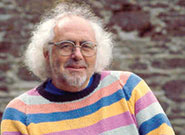Mick Aston, Emeritus Professor of Landscape Archaeology at the University of Bristol has been given a Lifetime Achievement Award at the 2012 British Archaeological Awards.
Professor Aston, a well-known face from Channel Four’s Time Team has been honoured for his major contribution to archaeology over the past 30 years. In presenting Professor Aston with his award Mike Heyworth, chairman of the British Archaeological Awards, told him he had inspired people from all over the world who now had a better understanding of archaeology thanks to his teaching and commitment to archaeological communication.
Professor Aston joined the University of Bristol in 1979, organising and promoting lifelong learning and continuing education in archaeology. In 1994, he developed the idea of Time Team with television producer Tim Taylor and appeared as the senior archaeologist in 16 series of the award-winning programme. Alongside Time Team, Professor Aston worked on a major research project that investigated the origins of the English village at Shapwick, Somerset, and researched monastic and landscape archaeology throughout Europe. He was Professor of Landscape Archaeology at the University of Bristol from 1996 to 2004.
Mark Horton, Professor in Archaeology at University of Bristol commented: ‘We were delighted to hear that Mick had been honoured in this way. His contribution is not just in television archaeology, but also in making the past accessible to all, through his lectures, courses and books – his belief that the past is for everyone to enjoy and learn about. We are very privileged that Bristol was his academic home and that we can follow his legacy.’
Established in 1976, the British Archaeological Awards are a showcase for the best in UK archaeology and a central event in the archaeological calendar.
